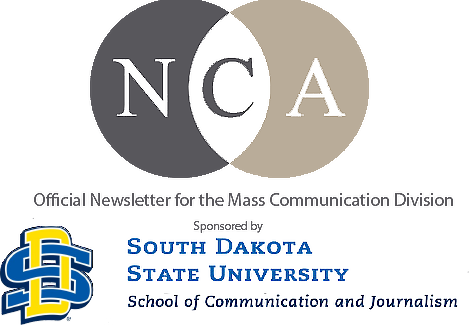
Volume: 29 Number: 1
Published three times annually by the Mass Communication Division of NCA.
Publications/Web Editor – Rocky Dailey, South Dakota State University
Welcome from the Chair – Editor’s Note – Announcements – Scholar Chat– Division Officers – Gatekeeper Archives
We are at that time of year in my department where the faculty are looking through applications from graduate students to determine who we would like to come join us in the fall. For many of us, training and supporting the next round of communication scholars is a crucial part of the work that we do and the relationships that we establish with the next generation are some of the most important professional relationships we will have. In fact, many of you reading this message right now obviously owe a degree of your current success to not only your graduate advisor but to a collection of other senior people who helped you along the way. This could have been a dissertation committee member, faculty member, research collaborator, or just someone who took the time after an NCA panel to point your research in a more fruitful direction.
It is in this spirit that my predecessor, Veronica Hefner, made mentorship a priority for our division and I am thrilled to help her in this pursuit during my year as the chair. Mentorship is essential for helping our division stay strong and for the health of our discipline. Even if it is just a cup of coffee with a young scholar at our next conference, the advice you provide or the “hey, let me introduce you to…” that you facilitate will not only pay clear dividends to that scholar, but it will also help ensure that we can continue our collective mission of furthering mass communication scholarship and research. As such, please be on the lookout in the coming year for announcements/emails about mentorship opportunities and we hope that you take a moment to help a newer MCD member further their journey in our division.
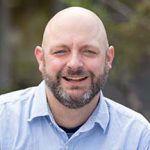
Chair
Matt Lapierre
University of Arizona
Department of Communication
1103 East University Blvd. Tucson, AZ 85721
mlapierre@arizona.edu
Spring has sprung, along with a new volume of the Gatekeeper newsletter. Many thanks to those who contribute content for each edition. Please email me with any updates or announcements you feel are of interest to the division. We changed access to our Facebook page as we were getting a lot of spam post, however please continue to request post and I will review them as soon as I can.
We like to focus on a mass communication scholar in our Scholar Chat section for each edition, so if you are interested or know of someone doing some great work in our field, please let me know so we can spotlight such work.
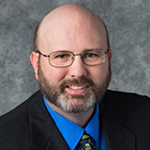
Publications & Web Editor
Rocky Dailey
South Dakota State University
School of Communication and Journalism
Yeager Hall 211, Box 2235
Brookings, SD 57007
rocky.dailey@sdstate.edu
The Mass Communication division is proposing a new program designed to pair graduate students and early career professionals with seasoned veterans in the division to help with mentorship in scholarship, teaching, and service. If you are interested in being a mentor or working with a mentor, please complete the form at the link below:
NCA Mass Communication Division Mentorship Interest
Please consider signing up to review next years conference paper submissions at the link below. The survey takes less than 5 minutes.
On the survey, please select ALL the theoretical, conceptual, contextual, and methodological areas you believe you could review, not just those that you specialize in. This will help us match reviewers to submissions.
Sign up to be an NCA Mass Comm Division conference reviewer through our brief Google form below, and we’ll send you a handful of papers/panels to review in the spring of 2024. As a reviewer, you can help fellow scholars by giving your feedback and be the first to learn about new research.
NCA Mass Communication Division Conference Reviewer Sign-Up
If you have any questions, please reach out to Hilary Gamble, Second Vice-Chair of the Research Committee, at hgamble@aum.edu
The Department of Integrated Studies inside Kansas State University’s College of Technology & Aviation (COTA) invites applications for a 9-month non-tenure track Instructor or Assistant Teaching Professor of Technical Writing. They are interested in candidates who can demonstrate excellence in online course delivery (as some of the load may be delivered online) and who have specialties in or related to the following areas: digital rhetorics/storytelling, new media writing, science writing, grant writing, technical writing and industry, plain language protocols, coding and technical writing, technical writing and EDI, and/or technical writing and cultural/feminist rhetorics.
The successful candidate will teach courses in technical writing and contribute to the development of a technical writing certificate but will also be called on when appropriate to teach other courses that satisfy the university’s general education writing requirements as needed. The successful candidate will have the opportunity to teach introductory and advanced technical writing courses, according to their specialization, to partner on grant-writing opportunities, community-outreach, and faculty collaboration inside COTA’s Center for Communicating Innovation.
Minimum Qualifications:
M.A. in technical writing or a closely-related field (completed by July 2024).
Experience teaching online.
Evidence of ongoing scholarship.
Preferred Qualifications:
A Ph.D. in technical writing or a closely-related field (completed by July 2024).
Evidence of teaching excellence, both online and in-person.
Evidence of excellent ongoing scholarship and disciplinary service.
Knowledge of and/or experience related to sponsored research or grant writing.
Other Requirements:
Applicants must be currently authorized to work in the United States at the time of employment
How to Apply:
Please submit the following documents:
Letter of Interest
Curriculum Vitae
Names and contact information for three current, professional references
Screening of Applications begins March 18 and will continue until position is filled.
Wake Forest University’s Department of Communication is seeking an Assistant Teaching Professor or Assistant Professor of Practice to teach courses in the new Marketing Communication minor. The position will begin in Fall 2024. The position has a two-year initial term which is renewable and subject to subsequent promotion in rank. Candidates are expected to teach classes at the undergraduate level in marketing communication (6 courses per academic year). Course topics include, but are not limited to, courses such as Introduction to Integrated Marketing Communication, Writing for Advertising and PR and Communication and Consumer Behavior. To learn more about the Communication Department and the Marketing Communication minor, please follow the links.
An application consists of a cover letter of interest, a current CV, a list of three references with contact information (whom we can contact for finalists), a statement of teaching philosophy, and course evaluations (as available). Formal review of applications begins March 18, 2024, and continues until the position is filled. Please submit your application materials as a single PDF at https://hr.wfu.edu/careers/ and select “Faculty Openings.” Questions concerning the application process may be directed to wakejobs@wfu.edu. For additional information about the School/Department, go to: http://college.wfu.edu/communication.
Allie Worsdale (University of Georgia) and Julie Martin (Arizona State University) are seeking individuals to submit abstracts for a panel exploring communication about tobacco smoking and the use of other nicotine products (e-cigarettes, nicotine pouches, etc.). They plan to prepare a panel submission for the Health Communication division at the 2024 NCA Convention in New Orleans, Louisiana.
The aim of this panel is to explore how individuals communicate about tobacco and other nicotine products. Paper themes may include those related to interpersonal communication (within families, with healthcare providers, etc.), mass media and message processing, tobacco/nicotine regulation, or other areas. With this panel they hope to foster collaboration, explore the future of tobacco/nicotine research, and open discussion about how our work may interact with other disciplines. Additionally, they welcome papers that span multiple paradigms.
If you are interested in participating, please send the title of your work and an abstract of up to 250 words to Julie Martin or Allie Worsdale. Please also include your academic affiliation and your title at your institution.
Dominant Western narratives of the climate crisis tend to be polarized, either focusing on the race to meet a moving tipping-point target or capitalist fictions of a green economy. Climate activists, seeing more complexity, are using a variety of narrative strategies to fight for climate justice and break from these limiting and polarizing narratives. As an activist strategy, stories can help audiences make sense of our world and imagine a more hopeful future with less fear and more motivation for the work required to change the current trajectory. This paper session highlights different modes of storytelling for climate activism that centers greater regard for the planet. Topics may include, but are not limited to:
AI storytelling
Podcasts
Video games
Episodic videos that inspire crowd involvement
Brand activist influencer stories
Documentary
Graphic novels
Performance art
Artivism
Social justice theater
Transmedia storytelling
If your paper is a good fit for this session, please submit a 200-word abstract and your contact information to cunninghamc@gonzaga.edu on or before March 24, 2024. Notifications will be sent out on March 29, 2024.
Call for Discussion Panelists for the Gay, Lesbian, Bisexual, Transgender, and Queer Communication Studies Division, 2024 National Communication Association Convention in New Orleans, LA
Panel Title: Misinformation and hateful Online Discourse Surrounding Transgender/Gender Expansive Children and their Parents
Panel Organizer: Kelly M. O’Donnell- University of Pittsburgh- KMO70@Pitt.edu
This proposed panel seeks to bring together scholars of all communication disciplines who have transgender/gender expansive children and have experienced online harassment or bullying. Much of the communication we engage in these days is in online contexts. We get news, updates about friends’ and sometimes strangers’ lives, and interact on several digital spaces such as Facebook, X, Instagram, YouTube, and TikTok. Cyberbullying is not a new phenomenon; however anti trans hate has reached a fever pitch with many states banning the mere discussion of transgender/gender expansive children in schools, forcing children to use bathrooms that do not align with their gender, and passing so-called “parental rights” bills that threaten the lives and well-being of children who come out at school but not at home. This environment gives trolls (people who harass others online) and people who do not believe that being transgender is real, especially children, an opportunity to bully and share others’ content on various platforms such as Libs of TikTok. Libs of TikTok is an account that reposts videos by “woke liberals,” thereby increasing the harassment of the original creator.
Misinformation about gender affirming therapy and transgender/gender expansive children abounds online and on mass-personal online environments (Facebook, X, Instagram, YouTube, and TikTok) to vilify the parents who “allow” their children to be transgender/gender expansive. There are people who seek to legitimize this misinformation by using pawns such as Blaire White, a white conservative provocateur and transgender woman, who posts her hateful content on YouTube. As the mother of a transgender girl, I hope to bring people like me together to discuss the bullying and harassment that people like Blaire White and her ilk engage in online by examining the rhetoric that these people use, their discursive strategies to delegitimize transgender/gender expansive children, and censure their parents as abusers, groomers, and worse. In addition to questions submitted by the participants, this panel will discuss sharing information about their transgender/gender expansive children in online contexts, as we have the same right to talk about our lives as others do; or if we should stay quiet and let the trolls control the narrative about these children.
To be considered for this panel, please submit a 300-word abstract describing your personal experiences and methodology (scholars of all methodologies are encouraged to submit), at least two questions you would like the panel to discuss, and a short bio including name, affiliation, position, and email address by March 24 at 11:59 pm EST to Kelly M. O’Donnell KMO70@Pitt.edu Please only submit if you are planning on attending the NCA convention in person.
All those who send in an abstract will be notified by March 26 as the division has a deadline of March 29, 2024.
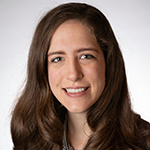
Rebecca Frazer (Ph.D., The Ohio State University) is an Assistant Professor in the Department of Public Relations at the University of Florida. She is a media psychology researcher, focusing on how people process and respond to story-form (narrative) media. Her work has examined psychological processing of narratives in a variety of contexts, including entertainment television, online news, terrorist propaganda, and social media testimonials. She is particularly interested in people’s experiences of enjoyment, appreciation, social learning, persuasion, and coercion as they relate to narrative exposure.
Matthew Grizzard (Ph.D., Michigan State University) is an Associate Professor in the School of Communication at The Ohio State University. Situated within media psychology and mass communication, his research program examines moral judgments processes as they relate to the consumption of popular media, with a primary focus on narratives. For example, current projects explore how viewers come to evaluate characters as heroes and villains, what types of narrative content elicit moral emotions such as guilt, and why viewers prefer some types of narrative resolution over others.
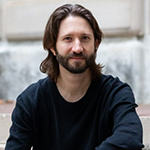
RF: My bachelor’s degree is in communication (public relations emphasis) and political science (double-major). I had been coaching middle and high school speech and debate for several years while in college, and I loved interacting with the students. I initially decided to go to grad school because I realized I loved teaching (and I still do). I caught the research “bug” during my second year of graduate school. Two elements of mass communication research keep me coming back for more. First, the type of research I do (media psychology) is—at its core—about understanding the human mind. Human beings endlessly fascinate me—I love trying to figure out how people work and what causes people to think/act/feel similarly or differently from one another. Second, the research process can be tedious and demoralizing at times, so having amazing collaborators who are also good friends has really helped to keep me interested and motivated.
MG: I was a first-generation college student from a very small town (Jarratt) in rural part of Virginia, so I didn’t even know the field existed until about halfway through college. I started out as a music major (vocal performance), and I only took some communication classes because of my roommate’s recommendation. The first few classes I took were on film/video production techniques, popular culture, and depictions of identity in popular movies. These classes got me extremely excited, because I had always had a deep fondness for movies and video games. As I said before, I grew up in an extremely rural area, so I spent a ton of time as a kid watching movies and playing video games. Finding out that the field of communication and specifically mass communication existed and that I might be able to have a career in it was an eye-opening experience. After working for a year after graduating, I decided I would like to try to go back to grad school in communication, so I took some continuing education classes and applied. I decided to attend Michigan State University (MSU) for my master’s degree because of their focus on training graduate students in research methods, and I decided to stay on for my Ph.D. My research interests in morality and narratives were guided by my advisor—Dr. Ron Tamborini—and I also worked outside of communication in a psychology lab that examined decision-making processes.
RF: I did my masters and my PhD at Ohio State. Matt joined our faculty (coming from the University at Buffalo) during my second year of grad school, and I joined his lab group that spring and never left. Matt eventually became my co-advisor for my PhD, and we’ve continued to work together after I graduated and started my current job (Assistant Professor at the University of Florida) in summer of 2023. Matt was a great PhD advisor, and over the years, our working styles, research interests, and priorities all seem to have aligned well. Collaborating with Matt has been very enjoyable and productive, and this point we have been coauthors on six journal publications and two book chapters, as well as several more projects in process. Along the way, I’ve also enjoyed collaborating closely with several of Matt’s other current and former grad students.
MG: I don’t have too much to add other than I really enjoy working with other people and have always run a highly-collaborative lab. This again comes from my training at MSU. I especially enjoy working with graduate students and seeing them develop into experts in their area of study.
RF: My collaborators have mostly been my colleagues at the institutions I’ve been in (Ohio State University and University of Florida), as well as a couple of scholars from other universities that my advisors and lab mates have introduced me to at conferences. I think conferences are a great way to network and find people interested in similar topics as you.
MG: Conferences, especially smaller conferences with a focus in your particular topic area, are a great place to identify collaborators. I think a lot of people are interested in collaborating, and I personally would like to see more large-scale, cross-university collaborations. As of now, I’ve mostly collaborated with colleagues from my own institutions.
RF: First, on the morality side, it’s been a life-long interest. I was raised in a deeply religious family and grew up immersed in scriptures and church doctrines regarding morality. I was a super black-and-white kid—I loved clear moral boundaries and was always trying to find and enforce them (my sisters joke that I was a “judgy” child). The older I got, the more I realized morality and the ways people think about it are often not so black-and-white. I found that realization deeply disconcerting, and but also it motivated me to dig deeper. I took ethics classes as electives in college, and I just kept reading and thinking about complexities of morality, so applying it in research seemed like the next natural progression. Second, on the violence and anger side (e.g., I conduct research on terrorist and extremist propaganda, as well as ongoing anger and desires for revenge regarding COVID-19), I think living through 9/11 when I was in elementary school motivated a lot of that interest for me. By the time I was 10, the U.S. had invaded both Afghanistan and Iraq, and I grew up watching war coverage on the news every night and having cousins and family friends going to war. I remember ruminating on all of that a lot and trying to understand it. War didn’t make sense to me as a little kid, and it still doesn’t make sense to me as an adult—I guess I’m still ruminating. I keep coming to back to wanting to understand what motivates people to hurt one another, and whether there is anything we can do to de-motivate that.
MG: My interest in affective disposition theory, morality, and violence all came from a graduate seminar on entertainment theory that Dr. Tamborini organized in my first year at MSU. We covered numerous topics and had esteemed scholars visit as guest speakers, including Mary Beth Oliver, Art Raney, Peter Vorderer, and René Weber. Networking with so many amazing scholars was an extremely rewarding experience and I think it really helped develop my passion for media psychology.
RF: It means a lot. I greatly respect the MCD division and have seen a lot of high quality scholarship presented in MCD panels over the years, so it’s a true honor to present on the top paper panel.
MG: I agree with Rebececa. I am so deeply appreciative of having my work be recognized by the division. MCD has been one of my academic homes since attending my first NCA in Chicago in 2007. Knowing that so many great researchers submit to the conference every year further emphasizes the importance of being recognized with a top-paper award. The other thing the distinction does for me is provide me with increased motivation to continue my work.
RF: Currently I’m teaching “Global Social Change Communications,” and I’ve loved that. I also taught “Media and Terrorism” at Ohio State (in fall of 2020—fun times!), which was very interesting for me. I enjoy teaching writing and research methods courses as well.
MG: My favorite classes to teach are an intro undergraduate class “History of Communication,” where I provide students with a survey of how human communication has changed beginning with cave painting; a higher-level undergraduate class “Media Entertainment,” where I cover the extensive social scientific theories of media psychology; and the first-year graduate class “Statistics I,” where I introduce students to the logic and practical applications of statistical analyses.
RF: They’re tired. World events over the past few years have beaten our students down some, I think. But I also see a lot of resilience and motivation that gives me hope. I think students see how quickly our media environment is changing, and that’s exciting to learn about and think about.
MG: I think we’re all feeling a bit worn out from the last four years, and there are many challenges facing our world (e.g., climate change, the resurgence of fascist ideologies). But despite these challenges, students today are resilient, empathetic, and passionate about what they study. I also think students today have their pulse on the new mass communication environment in a way that is very different than the cohorts that came before them. Many of my students run successful social media channels and are contributing to online discourses in interesting ways.
RF: I mostly do human-subjects research (experimental) and recruiting quality online samples of participants is becoming really challenging in the age of bots and AI. I think that’s what I worry about the most—how can I be sure my study participants are real people? Of course, we put a lot of checks and protocols into our study designs and recruitment approach to try to minimize bot participation. But it still really worries me. I find myself wondering how long we’ll be able to outsmart the bots, and if conducting human-subjects research online will eventually become impossible as AI improves.
MG: The biggest challenge that I think all social scientists are facing right now is the pace at which we’re expected to conduct research. Expectations regarding productivity are exceedingly high and I think that hurts academics ability to reflect on what they’ve done and what they should do next.
RF: A lot of my published research is in the area of narrative media psychology, and I remain interested in how stories influence people. Stories are perhaps the most prevalent form of human communication, and better understanding human story-processing is always relevant for a myriad of different applications. The COVID-19 research I referenced earlier has also been very interesting. I’m working with a graduate student here at the University of Florida who is interested in political resentment. We’re examining in how continuing anger regarding COVID-19 influences people’s attitudes and their responses to political/social messages.
MG: I think the most interesting areas of mass communication research are those that identify how human psychology interfaces with media. I’m particularly inspired by work that considers processes and mechanisms that extend beyond a single context. For example, moral judgment processes are things we engage in in both fiction and the real world, and there is a surprising amount of overlap in these processes in both contexts.
RF: Right now, I am noticing an increased research focus on misinformation/disinformation, computational methods, and AI, and I think that’s all likely to continue for the next few years. I think we’ll probably see a spike in political communication scholarship as well around and after the 2024 elections, given how contentious they are likely to be.
MG: This is the million-dollar question, and I wish I had a good answer. How we engage with media has changed so dramatically over the last decade. Our days are nearly filled up now with snippets of content delivered to us on our own personal screens. I don’t know how that is affecting us, but I do think there are several things going on that should be considered carefully by our field, including the fragmentation of the media landscape and the highly individualized nature of each person’s media environment, thanks to algorithms (and AI) pushing specific content based on interest.

Chair
Matt Lapierre
University of Arizona
Department of Communication
1103 East University Blvd. Tucson, AZ 85721
mlapierre@arizona.edu
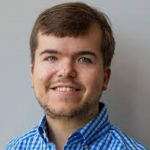
Vice-Chair
Colin Kearney
Hampton University
School of Liberal Arts & Education – Communication
262 Armstrong Hall
Hampton, VA 23669
colin.kearney@hamptonu.edu
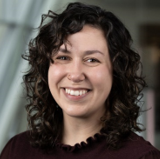
Vice Chair-Elect
Cassandra Alexopoulos
University of Massachusett- Boston
100 William T. Morrissey Blvd.
Boston, MA 02125
c.alexopoulos@umb.edu
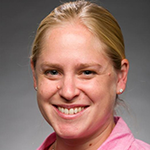
Past Chair
Veronica Hefner
St. Mary’s College – California
School of Liberal Arts – Communication
105J Sichel, Moraga, CA 94575
vh10@stmarys-ca.edu
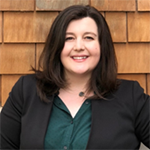
Secretary
Sofia Rhea
University of California, Davis
Department of Communication
Kerr Hall 154, Davis, CA 95616
vrhea@ucdavis.edu
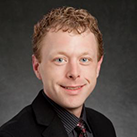
Secretary-Elect
Christopher Josey
University of Missouri
College of Arts and Science Communication
212 Switzler Hall
joseyc@missouri.edu

Publications & Web Editor
Rocky Dailey
South Dakota State University
School of Communication and Journalism
Yeager Hall 211, Box 2235
Brookings, SD 57007
rocky.dailey@sdstate.edu
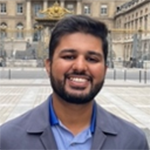
Graduate Student Rep.
Muhammad Rasul
University of California, Davis
Department of Communication
Kerr Hall 171, Davis, CA 95616
merasul@ucdavis.edu
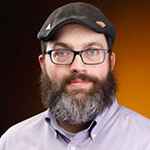
Ad-Hoc Appointment – Group Parliamentarian
Shane Tilton
Ohio Northern University
Department of Communication
Freed PAC 137
Ada, OH 45810
s-tilton@onu.edu
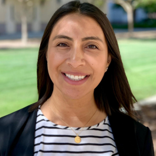
Graduate Student Rep. – Elect
Nancy Molina-Rogers
University of California – Santa Barbara
Department of Communication
4005 Social Sciences & Media Studies
UC Santa Barbara 93106-4020
nancymolina-rogers@ucsb.edu
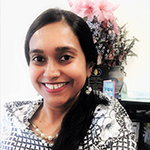
IDEA Representative
Sumana Chattopadhyay
Marquette University
Diederich College of Communication
Johnson Hall 404F
Milwaukee, WI 53233
sumana.chattopadhyay@marquette.edu

Committee Chair
David Stamps
Bentley University
175 Forest Street
Waltham, MA 02452
dstamps@bentley.edu
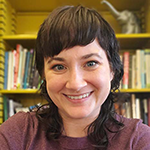
First Vice-Chair
Hilary Gamble
Auburn University – Montgomery
Communication & Theatre
7430 East Drive
Montgomery, AL 36117
hgamble@aum.edu
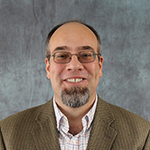
Second Vice-Chair
Laramie Taylor
University of California-Davis
Communication Department
7430 East Drive
396 Ker Hall, Davis, CA 95616
lartaylor@ucdavis.edu
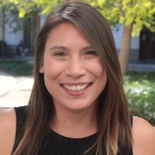
Second Vice-Chair – Elect
Debora D. Pérez Torres
California State University, San Bernardino
Department of Communication Studies
5500 University Parkway
San Bernardino, CA 92407
debora.pereztorres@csusb.edu

Committee Chair
Benjamin K. Smith
California State University East Bay
Department of Communication
3011 Meiklejohn Hall
Hayward, CA 94542
benjamin.smith@csueastbay.edu
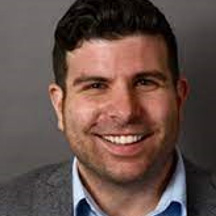
Vice Chair
Brandon Miller
Department of Communication
University of Massachusetts Boston
Wheatley Hall, Floor 6, Room 103
Boston, MA 02125
Brandon.Miller@umb.edu
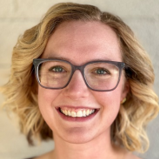
Vice Chair-Elect
Leah Dajches
Donald P. Bellisario College of Communication
Penn State
Carnegie 011
lud310@psu.edu
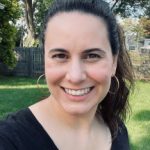
Legislative Assembly
Valerie Kretz
St. Norbert College
Communication and Media Studies
100 Grant Street, Boyle Hall 352
De Pere, WI 54115
valerie.kretz@snc.edu
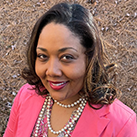
Nominating Committee
Q. McElroy
Brenau University
College of Business and Communication
500 Washington St. SE
Gainesville, GA 30501
qmcelroy@tiger.brenau.edu